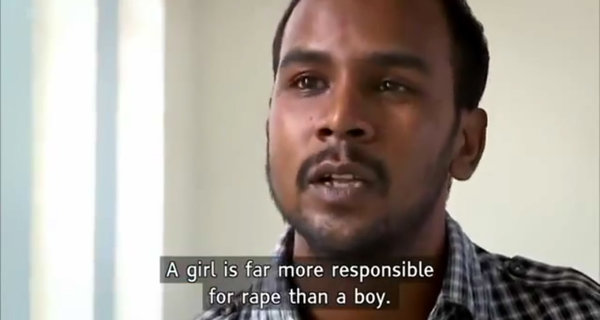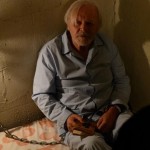
The Indian government has threatened to take action the British Broadcasting Corporation (BBC) over a documentary in which a convict was interviewed about the fatal gang-rape of a college student in 2012.
“India’s Daughter” was broadcast in the U.K. and several other countries by the BBC on Wednesday despite criticism levied by the Indian government.
The documentary includes an interview with one of six men convicted of brutally raping a 23-year-old Indian student who, in compliance with Indian law, was referred to in the media by the pseudonym Nirbhaya (“fearless one”), in December 2012. Mukesh Singh, who is awaiting execution in India, showed no remorse for his crime, saying at one point that “a girl is far more responsible for rape than a boy.”
The documentary was scheduled for broadcast on television network NDTV in India alongside a simultaneous airing in the U.K. and other countries by the BBC (it will air March 8 in Sweden, Canada and a number of other countries; no airing is scheduled for the U.S.). The plug was pulled on the NDTV simulcast after the Indian government issued a decree banning the documentary over concerns that the jailhouse interview with Singh offered the convict a sensationalistic platform on which to voice his controversial opinions.
Despite concerns, the BBC went forward with its plan to air the documentary within Britain and in other countries, saying the documentary provided “a revealing insight into a horrific crime that sent shock waves around the world and led to protests across India demanding changes in attitudes towards women.”
The film was uploaded in its entirety to YouTube and on video-sharing websites shortly after it aired on television Wednesday evening. Despite the government’s best efforts at a ban, the film was available on several social media and piracy websites as of Thursday evening (a spokesperson for YouTube in India said the video site was complying with the government’s request to block the film, but copies could still be accessed within the country, according to reports).
Outraged Indian officials are now looking at the possibility of civil or criminal charges against the BBC for airing the film.
“All options are on the table, including legal action,” minister Rajnath Singh told NDTV as quoted by The Guardian. “We had asked to not release the documentary, but BBC still released it. We will investigate, and take action accordingly.”
It is unclear what action the government could take against the channel. Police in Delhi have opened a criminal investigation into the airing of the documentary, NDTV reported on Thursday.
India’s public has shown mixed reaction to the documentary and the ban. Shortly after the film aired, some expressed their outrage on the BBC’s Twitter and Facebook accounts. Others used the hashtag #BanBBC to voice their disapproval over the broadcast.
Yet others are in support of the documentary and have called on the government to reverse its stance, including the father of the young woman whose murder was the main focal point of the film.
“Everyone should watch the film,” Badrinath Singh said. “If a man can speak like that in jail, imagine what he would say if he was walking free.”
Matthew Keys is a contributing journalist for TheBlot Magazine.





